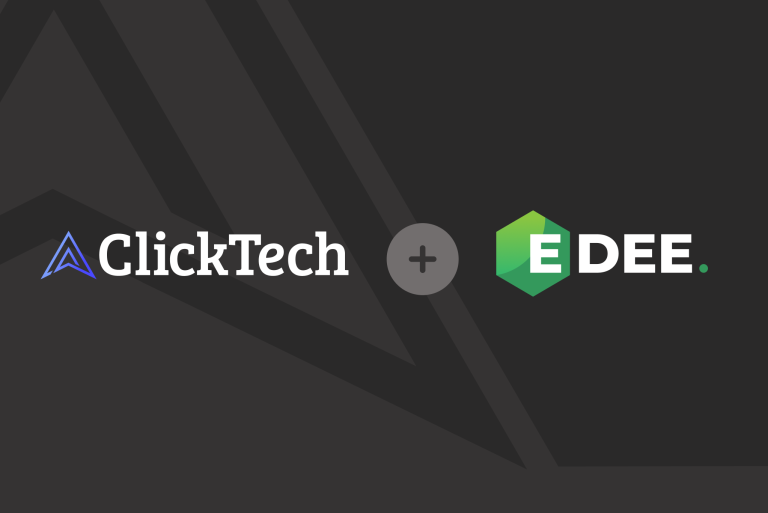Have you ever wondered how Google Ads decides on the order of the ads it displays on the SERPs?
It uses something called Ad Rank, a value that Google Ads uses to determine a paid ad’s position on a SERP. As far as components of Google Ads go, it doesn’t get mentioned as much as clicks, impressions and CTR but it’s a significant part of the PPC process general ad visibility.
In this article, I’ll look at how Ad Rank is calculated, key elements of the value, and how to improve your rank.
How is Ad Rank calculated?
A simple formula for Ad Rank is:
Ad Rank = CPC Bid x Quality Score
As Google Ads uses an auction system, it checks if an entered search query contains the keywords you’ve bid on and uses the formula to decide which ad will be displayed and where.
In summary, to get the top position, you need to have the best CPC bid and the highest Quality Score.
You can still achieve a high position with a lower quality score but that would require you having a higher CPC bid, which might not be cost-effective as you’ll be in competition with other advertisers who may have better Quality Scores.
But how does this also affect the amount that you pay for ads? Well, that also involves your competitors. Your price is worked out by the Ad Rank of the company below you, divided by your own Quality Score plus $0.01. In addition to this, there are lots of other factors at play making up your Ad Rank.
5 key factors of ad ranking
Your Ad Rank score is composed of 5 key factors which help Google to determine the quality and relevance of your ad:
- Ad/Landing Page Quality – Google uses algorithms to determine a Quality Score for both your ad text and the landing page it links to. It needs to be both useful and relevant for the keywords that you are bidding on. You will be given a Quality Score that helps to determine your ad position.
- User Search Context – There are lots of different elements at play in each user search. The search terms used, the time the search was performed, the user’s location when performing the search, other ads, organic search results and even the device the user is searching from are all taken into account.
- Ad Rank Thresholds – There are certain minimum thresholds that your advert needs to achieve in order to be seen – these are set by Google. If you don’t meet them, the ad is deemed ineligible to be shown
- Ad Extensions and Ad Formats – Using ad extensions can be useful to boost your Ad Rank. These are additional information, such as links to more specific content. Google calculates a projection of how these and other ad formats will weigh on the performance of your ad.
How to improve your ad rank
There are several techniques that you should be adopting in order to improve your Ad Rank, and most of them are relatively simple to implement.
Using Ad Extensions
Ad relevance is crucial to calculating Ad Rank and ad extensions play a major part in that. As Google said itself:
When estimating the expected impact of extensions and ad formats, we consider such factors as the relevance, clickthrough rates, and the prominence of the extensions or formats on the search results page. So even if your competition has higher bids than yours, you can still win a higher position at a lower price by using highly relevant keywords and ads.
Extensions add further context to ads and direct users to specific pages and contact details they might need. But it’s also important to only use ad extensions that have a purpose. Adding unnecessary extensions won’t help your CTR and may harm your Quality Score, which will affect your Ad Rank.
Make your ads more relevant
The clear focus on quality means that it’s more important than ever for all ads to be highly relevant to the search terms you’re bidding on. Doing your research and understanding audience intent is absolutely crucial now, so revisit your audience personas, think about their challenges and goals, and tailor your ad copy to directly answer that need.
Optimise your landing page
The quality of the content on your landing page is equally as important, and if it doesn’t match up, Google will suspect click fraud and make your ads ineligible for display. Think about the experience your customer needs when they visit your site, how relevant the content on your page is, how you can add value to them and how easy it is to navigate and carry out other actions on your landing page.
There are also many free and cost-effective resources online that can help you create a successful landing page. Even better, some can be used together to drive excellent results and automate your workload.
Here are some of our favourites:
Boost the performance of your ad groups
As your ads need to be extremely relevant, you should also look at making your ad groups much more specific. Each group needs to have a tightly controlled theme, and the keywords within it must be highly relevant. If you have a few rogue keywords in there, take them out and set them up in separate groups.
- Single theme ad groups (STAGs) – These are proven to increase CTRs and improve quality scoring. You use one keyword only per Ad Group.
- Keyword Match Types – These are parameters that you can set on keywords that help to control which searches display your ads. There’s the Broad Match Modifier, which only matches when you include words selected with a + sign, a Phrase Match, which includes your bid terms in an uninterrupted order, and Exact Match (this can still include function words not present in the search).
- Negative Keywords – These prevent your advertisements from displaying for certain search terms, ensuring even greater relevancy.
Conclusion
Although the landscape with Ad Rank is constantly changing, you can make an impact and a better experience for your customers at the same time. Whichever strategy you decide to try, developing a mindset of continual optimization, analysis of results and tracking will give you the most competitive advantage and the best position.




